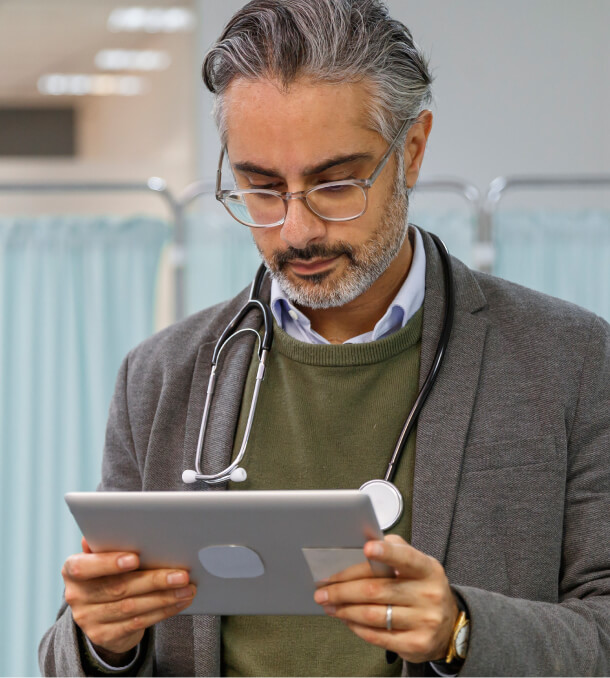Depression
Depression is a common but serious mood disorder. It causes severe symptoms that affect how a person feels, thinks, and handles daily activities, such as sleeping, eating, or working.
There are different types of depression, some of which develop due to specific circumstances.
Major depression includes symptoms of depressed mood or loss of interest, most of the time for at least 2 weeks, that interfere with daily activities.
Persistent depressive disorder (also called dysthymia or dysthymic disorder) consists of less severe symptoms of depression that last much longer, usually for at least 2 years.
Perinatal depression is depression that occurs during or after pregnancy. Depression that begins during pregnancy is prenatal depression and depression that begins after the baby is born is postpartum depression.
Seasonal affective disorder is depression that comes and goes with the seasons, with symptoms typically starting in the late fall and early winter and going away during the spring and summer.
Depression with symptoms of psychosis is a severe form of depression in which a person experiences psychosis symptoms, such as delusions (disturbing, false fixed beliefs) or hallucinations (hearing or seeing things others do not hear or see).
What are the symptoms of Depression?
Although depression may occur only once during your life, people typically have multiple episodes. During these episodes, symptoms occur most of the day, nearly every day and may include:
- Feelings of sadness, tearfulness, emptiness or hopelessness.
- Angry outbursts, irritability or frustration, even over small matters.
- Loss of interest or pleasure in most or all normal activities, such as . hobbies or sports.
- Sleep disturbances, including insomnia or sleeping too much.
- Tiredness and lack of energy, so even small tasks take extra effort.
- Reduced appetite and weight loss or increased cravings for food and weight gain.
- Anxiety, agitation or restlessness.
- Slowed thinking, speaking or body movements.
- Feelings of worthlessness or guilt, fixating on past failures or self-blame.
- Trouble thinking, concentrating, making decisions and remembering things.
- Frequent or recurrent thoughts of death, suicidal thoughts, suicide attempts or suicide.
- Unexplained physical problems, such as back pain or headaches.
For many people with depression, symptoms usually are severe enough to cause noticeable problems in day-to-day activities, such as work, school, social activities or relationships with others. Some people may feel generally miserable or unhappy without really knowing why.
Depression symptoms in older adults
Depression is not a normal part of growing older, and it should never be taken lightly. Unfortunately, depression often goes undiagnosed and untreated in older adults, and they may feel reluctant to seek help. Symptoms of depression may be different or less obvious in older adults, such as: Memory difficulties or personality changes, Physical aches or pain, Fatigue, loss of appetite, sleep problems or loss of interest in hobbies— not caused by a medical condition or medication, Often wanting to stay at home, rather than going out to socialize or doing new things, Suicidal thinking or feelings, especially in older men
How is depression treated?
Depression, even the most severe cases, can be treated. The earlier treatment begins, the more effective it is. Depression is usually treated with medication, psychotherapy, or a combination of the two.
Medications
Antidepressants are medications commonly used to treat depression. They work by changing how the brain produces or uses certain chemicals involved in mood or stress. You may need to try several different antidepressants before finding the one that improves your symptoms and has manageable side effects. A medication that has helped you or a close family member in the past will often be considered first. Antidepressants take time, usually 4–8 weeks,to work, and problems with sleep, appetite, and concentration often improve before mood lifts.
Types of antidepressants available:
Selective serotonin reuptake inhibitors (SSRIs). Doctors often start by prescribing an SSRI. These drugs are considered safer and generally cause fewer side effects than other antidepressants. SSRIs include citalopram, fluoxetine and paroxetine.
Serotonin-norepinephrine reuptake inhibitors (SNRIs) such as duloxetine and venlafaxine. Others include Monoamine oxidase inhibitors (tranylcypromine), Tricyclic antidepressants (imipramine) and Atypical antidepressants including bupropion, mirtazapine and vortioxetine.
Psychotherapies
Several types of psychotherapy (also called talk therapy or counseling) can help people with depression by teaching them new ways of thinking and behaving and how to change habits that contribute to depression. Evidence-based approaches to treating depression include cognitive-behavioral therapy (CBT) and interpersonal therapy (IPT).
The growth of telehealth for mental health services, which offers an alternative to in-person therapy, has made it easier and more convenient for people to access care in some cases. For people who may have been hesitant to look for mental health care in the past, telemental health services might be an easier first step than traditional mental health services.
When to see a doctor?
If you feel depressed, make an appointment to see your doctor or mental health professional as soon as you can. If you're reluctant to seek treatment, talk to a friend or loved one, any health care professional, a faith leader, or someone else you trust.
When to get emergency help?
If you think you may hurt yourself call your local emergency number immediately.
References
Depression (major depressive disorder) - Symptoms and causes - Mayo Clinic



